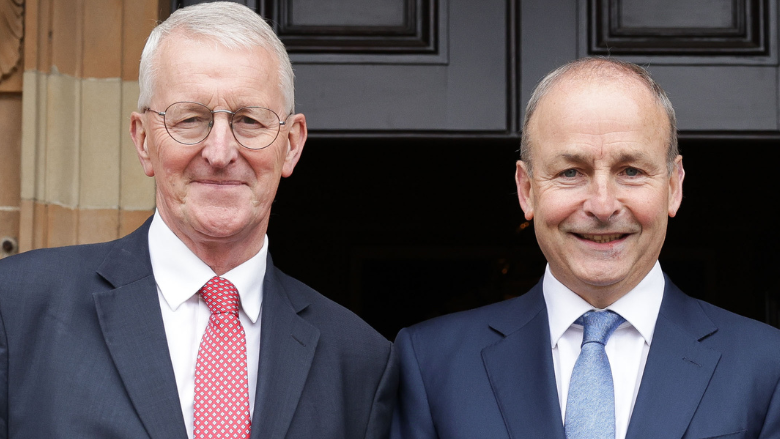Baroness O'Loan calls for new Troubles legacy body
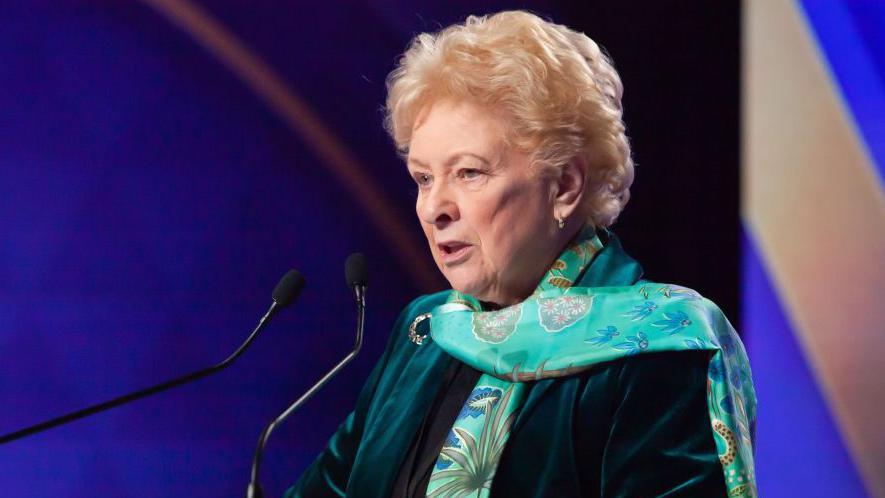
Baroness O'Loan says the ICRIR hasn't "gained the confidence of victims"
- Published
A former police ombudsman for Northern Ireland has said a new body with full investigative powers is needed to replace the Independent Commission for Reconciliation and Information (ICRIR).
Baroness O'Loan told BBC News NI that the ICRIR had not "gained the confidence of victims" and "doesn't have the powers it needs".
It comes as the UK government repeated a pledge to repeal the Legacy Act in the King's Speech on Wednesday.
Baroness O'Loan has called for an independent historical investigations unit similar to the type purposed in the Stormont House Agreement, external to replace the ICRIR.
'Very significant change'
She believes it could combine the historical investigations of the police ombudsman and the PSNI.
The former ombudsman added that if Labour "repeal the Legacy Act, they will have to produce another bill and that bill will be debated."
"I do know there is generally grave dissatisfaction with the fact that control of information effectively lies in the hand of the secretary of state not ultimately of the ICRIR.
"So I think there will have to be a very significant change if the Labour government choose to call it the ICRIR that's not the most important thing, the most important thing is that we can have inquests, that we can have civil actions, that there's no immunity provision and that there are proper investigations," she added.
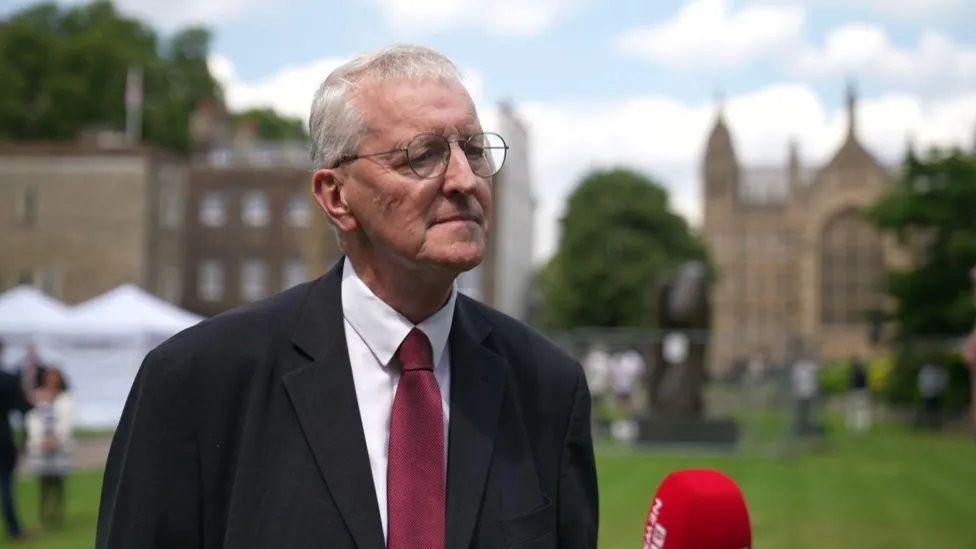
Hilary Benn said a process was needed for information recovery
On Wednesday, the Northern Ireland Secretary Hilary Benn said he had no plans to scrap the ICRIR, but plans to reform how it works.
Mr Benn reiterated his comments in Londonderry on Thursday.
"We need to find a practical and pragmatic way forward and it seemed to me there was no point saying 'we scrap the commission' and then in effect recreate a body to gather information about what happened," he told BBC News NI.
"It would look much the same.
"But, I also add that in so far as there are concerns and I accept its about trust and confidence in the process about the governance of the commission," he added.
"That is something that I want to address so I can say to those families - what is it about the structure of the commission, the way it works, its governance, the role of the secretary of state that you are concerned about - what can we do to allay those fears?
"But in the end you have to have a process that we all hope is going to work for the families.
"I've made it clear I'm not going to scrap it and the reason is because if you started again you'd end up with something that would look frankly much the same - and I have great confidence in Sir Declan Morgan."
What is the ICRIR?
The ICRIR is headed by Sir Declan Morgan, a former lord chief justice of Northern Ireland.
From 1 May, and for a period of five years, it will accept requests for investigations into UK-wide incidents in which people were killed or seriously injured between 1 January 1966 and 10 April 1998.
These can be lodged by bereaved families or victims themselves.
Cases can also be referred to it by the Northern Ireland attorney general and the Northern Ireland secretary, among others.
In consultation with those who come forward, the ICRIR, which has police powers, will decide on the type of investigation to be carried out.
Baroness O'Loan said she had concerns not just with the investigations process of the ICRIR but also with some of the memorialisation.
"I think we will have to see what form it stays, what its arrangements are, how it's tasked, what its jobs are," she said.
"I think there are serious problems with not just the investigations process but some of the memorialisation so there is a whole lot to be re-debated.
"We need to keep it as simple as we can. There will have to be a historical investigation unit, not the ICRIR's review unit."
Related topics
- Published17 July 2024
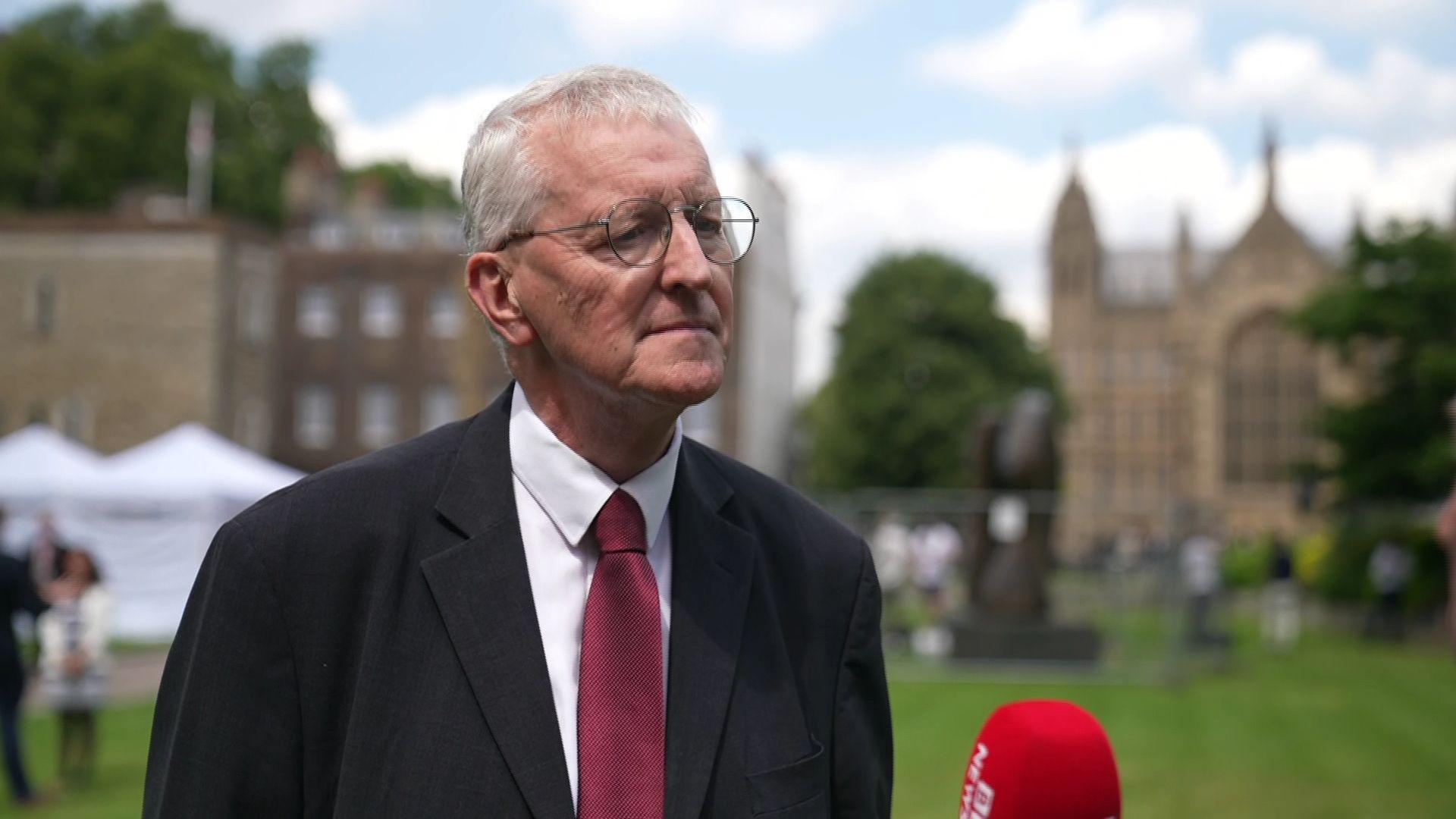
- Published28 February 2024
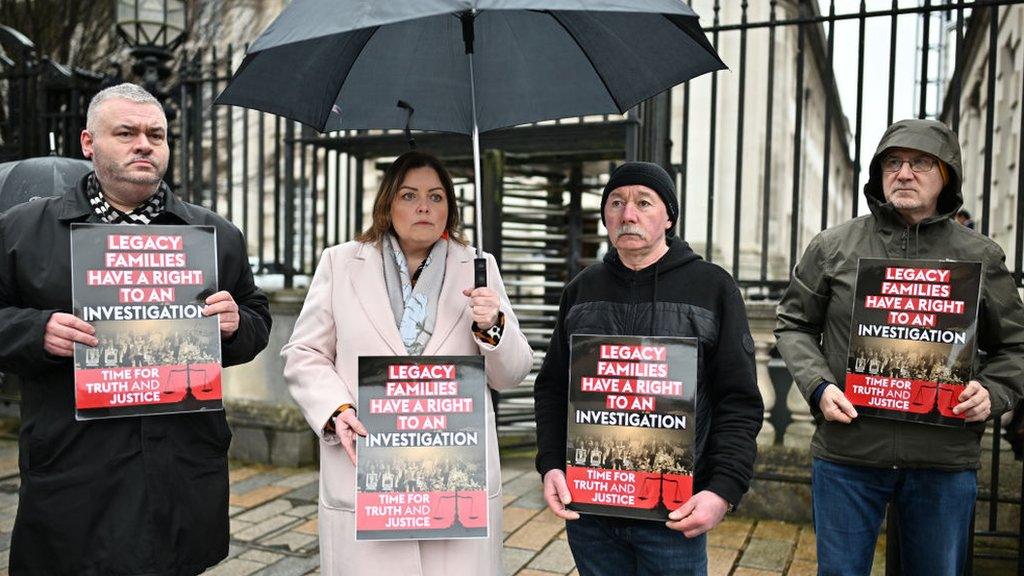
- Published11 July 2024
